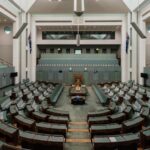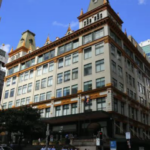Should Police and Media be Charged for Dangerous Leaks?

In January, six terrified people hid in the cool room of a Paris supermarket while a gunman prowled around the store, planning his next move.
The gunman had already killed four people and taken others hostage. He didn’t know that the six people, including a three-year-old child and a one-month-old baby, were hiding in the cool room. Police surrounded the building and media agencies were broadcasting live from nearby.
The incident was part of a spree of violence that had started two days prior when 12 people were shot dead at the offices of satirical magazine, Charlie Hebdo. In total, 17 people were killed in three days of attacks.
Hostages taking legal action over reporting
The cool room hostages have reportedly now launched legal action against various French media outlets for ignoring security protocols and endangering lives.
While the group was hiding from the gunman, some media outlets reported live on air that they were in the supermarket cool room. The group fortunately remained undetected and survived, but assert that the information put their lives in grave danger, adding that the gunman had been following news reports while in the supermarket, and had also been in contact with one of the media outlets.
The group’s lawyer said that “the working methods of media in real time in this type of situation were tantamount to goading someone to commit a crime.” Had the gunman been aware of the broadcast at the time, the group says that people would have been killed.
Interestingly, a spokesman for media outlet BFMTV said “we realised very quickly that a phrase by one of our journalists … about a hostage in the cool room was inappropriate, and was an error.” With such an admission, perhaps the cool room hostages will achieve a speedy and favourable resolution of the matter.
The media’s role in covering unfolding events
This story raises issues about the need for public safety balanced against the need for the media to report on a matter of public interest. Where is the line in the sand?
There are many situations in which the media will not report on a newsworthy matter in real time. For example, when Commonwealth budget papers are released to the media, they are usually embargoed for a number of hours until the Treasurer has presented the budget to parliament.
The media goes into “lock up” and gets the papers early to have enough time to digest the information and prepare their reports. A breach of the embargo would likely see journalists barred from political reporting.
But the budget is one thing; covering an unfolding event like a terrorist attack which has the potential to put people in danger is another.
In the French case, the BFMTV spokesman said that a police officer had told the journalist that a woman was hiding in the cool room. What we don’t know is whether that police officer had given the journalist the information on the basis that it was entirely “off the record” or wouldn’t be reported until the siege had ended.
There does seem to have been some confusion, as the journalist claimed that he had been assured by the officer that the hostages were not in any danger.
It is clear, though, that in such highly charged situations, there is a real risk of lives being put at risk. The media is scrambling to get whatever information it can to report the story, and the police are trying to work out what’s going on inside the building, keep journalists abreast and preserve public safety.
It is evident that such situations call for the exercise of great caution before releasing potentially dangerous information.
What criminal penalties are the media outlets facing?
The hostages are using a French cause of action for endangering life, which carries penalties of a 15,000 euro fine and a one-year prison term.
Interestingly in NSW, the Crimes Act limits endangerment of life to situations involving poison, or destroying or damaging property – which would not apply to incidents like the one outlined.
Responsibilities of police and the media
If the role of police is to protect rather than endanger lives, and if the media’s job is to report on the news rather than to cause it, both came dangerously close to failing in this situation.
And while police may be keen to satisfy reporters, and the media’s objective is to report the news as soon as possible, this cannot be at the expense of public safety. The speed at which information can be passed on to the public is not more important than the lives of six innocent and terrified people who found themselves in the wrong place at the wrong time.
Perhaps if the Paris hostages are successful in their case, it might make French police, journalists and news directors think twice about releasing information in hostage situations.
And perhaps broadening the definition of endangerment in NSW might act as a deterrent to the release and broadcast of such information here – what are your thoughts?






